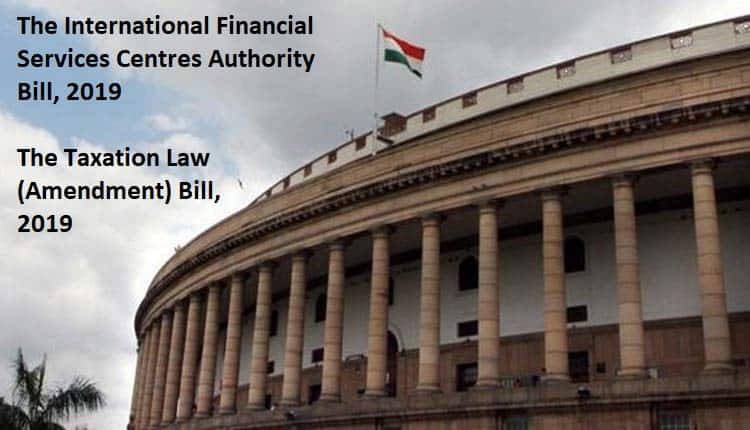Amid disorder in Lok Sabha, Finance Minister Nirmala Sitharaman managed to introduce two significant bills. To cut corporate taxes, government introduced the Taxation Law (Amendment) Bill, 2019. Similarly, she presented the The International Financial Services Centres Authority Bill, 2019 to provide a unified financial regulator.

The International Financial Services Centres Authority Bill, 2019
The bill initiates the formation of unified financial regulator through the International Financial Services Centres Authority Bill, 2019. Rajya Sabha withdrew the bill earlier and on 21st November 2019 Nirmala Sitharaman filed in Lok Sabha. The authority so formed will consist of 9 members, majorly selected by the central government. Four members will be collectively selected from RBI, the Securities and Exchange Board, the Insurance Regulatory and Development Authority, the Pension Fund Regulatory and Developmental Authority of the nation. Subsequently, it will hold authority over financial services and institutions.
The Taxation Law (Amendment) Bill
The Taxation Law (Amendment) Bill, 2019 is a replacement for the Taxation law (Amendment) Ordinance, 2019. The bill was finally introduced after the recent announcement by the finance minister to cut corporate taxes. The base of corporate tax brought down to 15% from 25% for new manufacturing businesses. Corporate taxes for existing companies brought down to 22% from 30%. In addition, to provide relief to many companies rate of MAT reduced to 15% from 18.50%.
The Chaos in Parliament
Following the resignation of Devendra Fadnavis recently as Chief Minister and oath taking of Uddhav Thackeray led to chaos in Lok Sabha. Consequently, BJP’s loss of its authority over Maharashtra raised a lot of commotion in the parliament. Amid the political drama in Maharashtra, Nirmala Sitharaman managed to introduce the bills before adjournment of Lok Sabha.
That apart, safeguards are already in place in case of violation or manipulation of the scheme to attain benefits under the provision. Moreover, this is one of the measures to aid the slow-growing economy and falling GDP. Additionally, this would increase the pace of economic growth that needs to recover in the next couple of quarters.